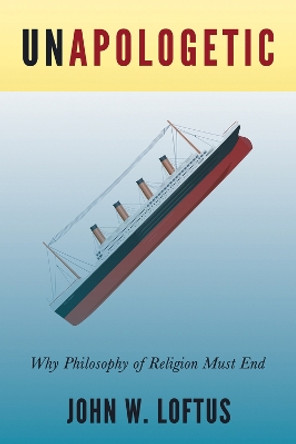Fostering mutual understanding by viewing religion from an outsider perspective Depending on how one defines religion, there are at least thousands of religions in the world. Given such religious diversity, how can any one religion claim to know the truth? Nothing proposed so far has helped us settle which of these religions, if any, are true--until now. Author John W. Loftus, a former minister turned atheist, argues we would all be better off if we viewed any religion--including our own--from the informed skepticism of an outsider, a nonbeliever. For this reason he has devised "the outsider test for faith." He describes it as a variation on the Golden Rule: "Do unto your own faith what you do to other faiths." Essentially, this means applying the same skepticism to our own beliefs as we do to the beliefs of other faiths. Loftus notes that research from psychology, anthropology, sociology, and neuroscience goes a long way toward explaining why the human race has produced so many belief systems, why religion is culturally dependent, and how religion evolved in the first place. It's important that people understand these findings to escape the dangerous delusion that any one religion represents the only truth. At a time when the vast diversity of human belief systems is accessible to all, the outsider test for faith offers a rational means for fostering mutual understanding.
About the AuthorJohn W. Loftus earned degrees in theology and philosophy from Lincoln Christian Seminary. He then affended Trinity Evangelical Divinity School and received a degree in philosophy of religion. Before leaving the church, he had ministries in Michigan, Illinois, and Indiana, and taught at several Christian and secular colleges. He is the author of Why I Became an Atheist, and the editor of The Christian Delusion.
Book InformationISBN 9781616147372
Author John W. LoftusFormat Paperback
Page Count 300
Imprint Prometheus BooksPublisher Prometheus Books
Weight(grams) 372g
Dimensions(mm) 220mm * 154mm * 15mm









